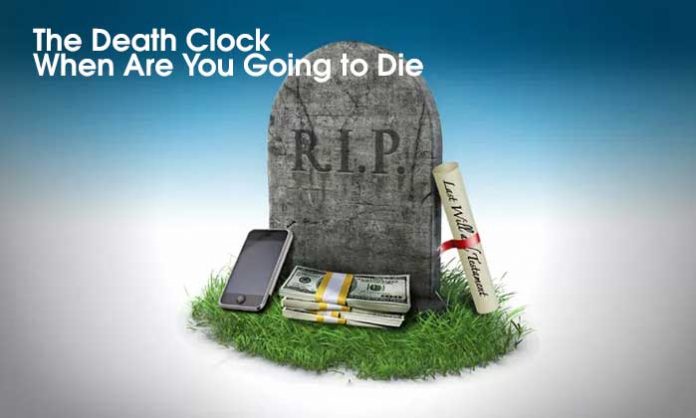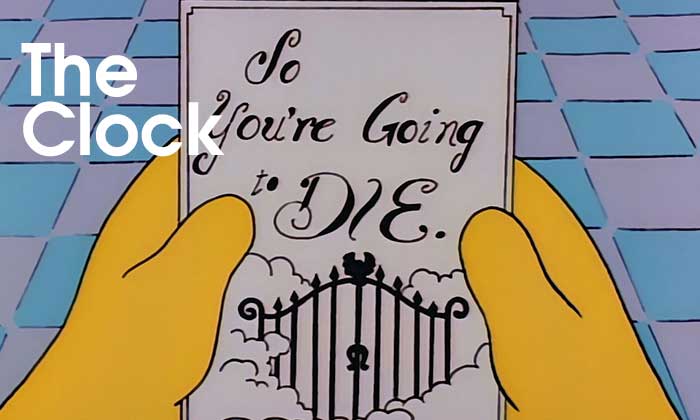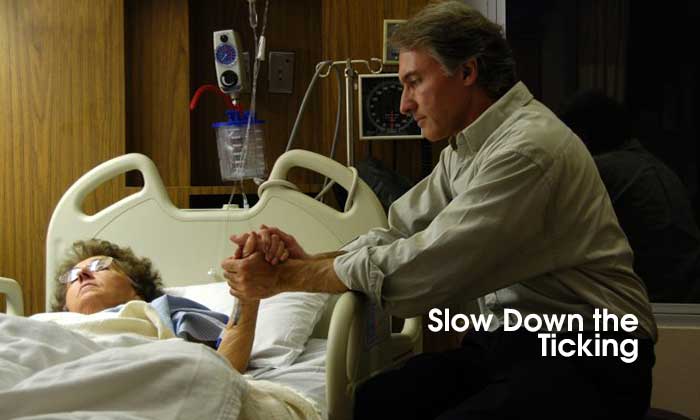
The number of years you would live is inscribed in your DNA and we are trying to decode it. The question, when will I die intrigues us and does it have an answer. Had we known the answer, would we live differently? Well, science cannot predict your lifespan any better than a $15 fortune teller.
The development of measures is not great enough to tell an exact date and time of death. But these measures are useful for insurance companies, palliative care teams and hospitals. Brian Chen, chief science officer at Life Epigenetics, says he would love to know when he is going to die. This would change his approach towards life. Doesn’t it sound interesting?
The work must be more practical, and companies are required to figure out best data usage. Ethicists are concerned how people will able to cope up this ultimate secret of life. But take it or not, health predictor is going to come out very soon.
The Clock
Steve Horvath, UCLA biostatistician, says that he is very straight, but his twin brother is gay. So, he was personally interested in analyzing biological data from twins’ saliva with different or opposite sexual orientation. They tried to detect some chemical changes which indicated that certain genes were turned off or on.
The epigenetic changes which do not modify the DNA sequence [1] but alters the activity of DNA may satisfactorily explain why two people having identical genes differ in this way. Horvath found ‘zero signal’ in the epigenetics of the saliva of the twins. In fact, there is a very strong linkage between epigenetic changes and aging
Horvath also became keenly interested in knowing how certain chemicals convert to cytosine- one of the four letters of the genetic code- which activates the genes. If we know a person’s actual age, observing these changes in the DNA of the person can tell if the person’s body is aging fast or slow. The researchers tested the epigenetic clock on around 13,000 samples of blood which were collected some years back. Or let us say decades, – from people whose death date was known. Clock can be used for prediction of mortality.

The most common diseases- Heart disease, cancer, Alzheimer’s -are related to aging, the ticking of Horvath’s clock will predict how much time a person will live and how much proportion of the life would be free from these ailments. It does not say anything about which diseases people will get. Five years into the research there is no altercation that epigenetics predicts life span [2].
Aging eight years faster than the calendar age is equivalent to two times the risk of death, while aging seven years slower than the calendar age is related to half the risk of death. Horvath’s lab has developed a newer version which is a very precise life span predictor and it is called as DNAm GrimAge. Epigenetic clock is more relevant for young people and many not be accurate for the old.
As of now, we don’t have evidence that it is useful clinically as there are huge errors. Further no pill can redo or reverse the effect. But Horvath and his clock have managed to answer out question that hangs over all of us- and helped find out what we can do to change the answer.

Slow Down the Ticking
With aging, the cytosine at the spots in our DNA either loses or gains methyl chemical groups. Horvath, who attempted to measure these increasing and decreasing methylation, finds changes which matter most and use them in making his clocks. Speed of the clock is determined by the underlying genes. 40% of the ticketing rates are determined by genetics, and rest through luck and lifestyle changes.
Morgan Levine, post-doctoral research fellow, compared epigenetic profile of an individual with the profile of cells from healthy umbilical cord. The more the deviation from the standard, the worse they are likely to be. She feels she will finally be able to compare epigenetic age measures for predicting even in childhood who is at greatest risk of which disease- it’s still too early to change that future. Genes may not be your fate and it’s even less with things like epigenetics. There must be things we can do to delay aging if we can figure out what they are
Some of the contenders are completely surprising. Having a healthy diet with lots of vegetables and fish is related to slower epigenetic aging. You may feel older when you are deprived of sleep and this isn’t a coincidence. Horvath says that people having insomnia have greater likelihood of showing epigenetic aging, All the positive lifestyle modifications create new biomarkers which is boring but exciting scientifically.
Surprisingly, it is found that regularly exercising may not be able to add more than some months to your life. These measurements are only on the DNA, but it is exciting to see what changes are brought about in the muscle, to know if exercise makes a difference there. Horvath’s clock is not inspiring. When he analyzed his urine, he found to his surprise that he was epigenetically trailing five years more than his chronological age. Some years later upon testing his blood he was relieved to find out the results were more consistent with the years. However, she adds that she is not blessed when it comes to epigenetic aging.
At the age of 50 years, he gives all his credit to his motivation because of self- interest. He Says that he wants to really find ways of slowing down the aging process. He is also abreast with the social and financial implications of aging. People must be kept healthier longer and that should be our objective
Further he is hopeful that refinements in the clock will be better able to reflect modifications in behavior and lifestyle. Biotech companies and investors are spending huge sums of money for fighting with aging and battling disease.

Business of Predicting Deaths
Many companies are already trying to make use of epigenetic clock to personalize and tweak risk assessments for life insurance. As of present, rates depend on demographics, gender and age of people and some metrics like smoking status of an individual. Personalization thus raises fairness. If your epigenetic clock is running faster with no fault, should you be charged higher for life insurance? Genetic Information Non-discrimination Act, 2008 (GINA) prevents discrimination based on genes. However, it does not address epigenetics.
Issue of privacy also crops up. Some of the facts like your correct biological age or your likely life span are considered personal. There is no regulation regarding this. With the progression of science, using and protection of data will become all the more pressing.
Are Horvath’s clock and other technologies developed for predicting death accurate and truly useful? Diane Meier, professor of geriatrics and palliative medicine says that these algorithms are not precise in terms of death timing and people live for a very long time with disease.
Gal Salomon, CEO of a medical company in Israel which uses artificial intelligence to identify medical risks, says that he initially did not want to execute the idea of death predictor thinking it was unethical. But then there was realization that doctors could use the technology to know where to stop. Such algorithms could enable doctors and family to take the decision of switching from aggressive to palliative care, beating the instinct to use life saving measures. It can also alert the family that the end is near.
Atul Butte, professor University of California, says that the jury is still out if machine learning from patterns of care provide better treatment. But there are no two heads about it that medical care is headed in this direction. Some years down the line the health systems that don’t use this data for improving medical delivery will be rendered archaic.




